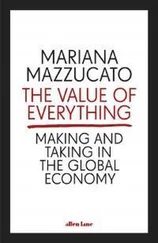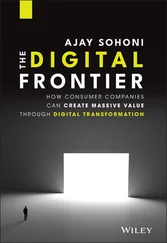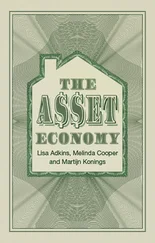From here our user may move in several directions, perhaps diving more deeply by looking at the top result in the second search, which purports to record live how many Google searches are being made ( www.internetlivestats.com/google-search-statistics). Or they may restrain the impulse to dive deeper into the topic and return to the writing at hand. The practice of searching is closely connected to other practices that make up this working life. Our user has one last reflection as they notice that accompanying the second site they looked at there are advertisements for paintings by indigenous Australian artists, and they remember that similar ads have been following them as they visited different websites at other times. These paintings indicate the practices of Google advertising, which we can turn to next.
Many readers will have guessed immediately what happened in relation to the searcher finding ads for indigenous Australians’ art on various websites that have nothing to do with such art, because ads that follow a searcher have become a common experience. The user must at some point have looked at or searched for such art, and tracking mechanisms on the internet have recorded this and used it to target ads. Similarly, some years ago, I booked a trip to Walt Disney World online, which led to Mickey Mouse and his friends stalking me across the Web amid the often noted, and ongoing, irony of being shown ads to go somewhere I could no longer afford to go because I had just paid to go there.
In following the practices of a user engaged in materialising an answer to a question, a second set of practices that can be followed has emerged with advertising, which implies an advertiser. For an advertiser, economic practices, at their crudest, involve trying to persuade people to buy the goods the advertiser has been paid to get them to buy (though it should be noted that advertising strategies may be complex, such as building brand loyalty or gaining attention). The question is, how does an advertiser end up in profit by being paid to boost a company’s sales? Let us assume this advertiser decides to work with online advertising and goes to Google. The magnet Google has to attract potential buyers is its search engine. In the period of Google’s development focused on here, two broad routes are offered. One is that when someone searches for a term related to a product being advertised, then the websites our advertiser has designated show up in the advertising sections of the Google page on which the search query is returned. The second is that Google facilitates ads appearing on other companies’ websites and, again, our advertiser can pay for their products and related sites to show up on sites other than Google’s.
To appear on the search page is to directly draw on the magnet of Google search. Ads appearing here are marked out in slightly different colours and with words indicating that they are ads – ‘sponsored’ often appears – ensuring that they remain distinct from the search results. If our advertiser works for a business that sells package holidays, they may want their site to be advertised to anyone searching for terms like ‘Disney’, ‘beach’ and so on. To do this they have to decide what kinds of words a user might type into search that would indicate they might be interested in holiday products. Google runs an auction on keywords and advertisers bid according to how much they are willing to pay each time someone clicks on the advertisement. The way Google’s auction is set up guarantees that the winner only pays just above whatever the second highest bid was. Once the auction is won, the ads our advertiser wishes to be seen will appear on Google’s search page when the words are used in a search. If a user then clicks on the ad, the advertiser pays Google. There are complications to this simple scenario – such as Google rating good or bad ads, the standards ads must meet, and the information Google offers advertisers to improve their ads and so on – but the fundamentals are in this practice of buying words at auctions which result in ads being served to users of Google search (Turrow 2011: 67; Levy 2011: 87–93).
The second process – in which ads appear on websites other than Google’s search page – runs in a similar way to the first. For example, a fan of model railroads might run a website and seek to gain some funding by signing up with Google to host ads. Our advertiser might then think that people who are interested in model railroads might also be interested in holidays featuring rail travel (and when I say ‘think’ that probably means research into the demographics and holiday habits of model railroaders). Having come to this conclusion, the advertiser bids for the relevant words and then pays in various ways. One key form of payment is what is called ‘cost per mille’, or what an advertiser will pay for 1,000 views of their ad on various sites. Google is paid by the advertiser and then pays the hosting website a percentage based on the ads served up and viewed. Again, there are many complications here and there have been developments over time, but the core practices of advertisers should by now be clear.
The third set of intersecting activities, or third point of view, making up the economic practices of Google search are those of Google itself. These activities split between the structures set up by the company that allow it to offer services and mediate between search users and advertisers, and the implementation of those structures in the software/hardware that allows practices to be automated. This connection transformed Google and established one kind of digital economic practice as a money gusher, as noted earlier in the company’s turn from loss to profit once Adwords was implemented. To sustain this, Google’s economic practices have a dual character, with a never-ending process of improving search alongside never-ending developments in advertising.
We have followed a single search from the point of view of the individual searcher, but from Google’s point of view things appear differently. Instead of the individual who searches, Google has to first see the collective and its social relations, which it can read to judge what search results to deliver. From this point of view, a search question is the last point of a search enquiry; it is what leads up to the delivery of certain results in a certain order that determines whether a search engine will be good or bad. This also highlights a recurrent frustration in trying to follow digital economic practices, as the algorithms and programs that fuel search engines are generally industry (or government) secrets. In the case of Google, however, the broad principles are known because its theoretical foundation, the PageRank algorithm, is publicly available (Page et al. 1999).
PageRank was the first method Google used to generate search results and was the basis of its early success, on which everything else depended. The fundamental insight was that the World Wide Web could be read through techniques modelled on academic citation practices. Citations are a means of judging how important an article is by measuring how many people cite that article in later papers; it is in this sense a ‘backlink’ because the links, here in the form of citations, appear after the article is published. To read the World Wide Web in this way, Google’s founders Larry Page and Sergey Brin developed a model that treats the links from one website to another as a backlink similar to an academic citation and then judges the importance of a site in relation to a particular subject by the number of backlinks. Further, they created a recursion through which, having worked out what sites were important on a particular topic (by reading the numbers of links to that site), they could weight those sites more heavily. This meant that their model generated complexity, as many links from unimportant sites might be balanced by a site having only a few links if those few links came from important sites (Page et al. 1999).
Читать дальше












